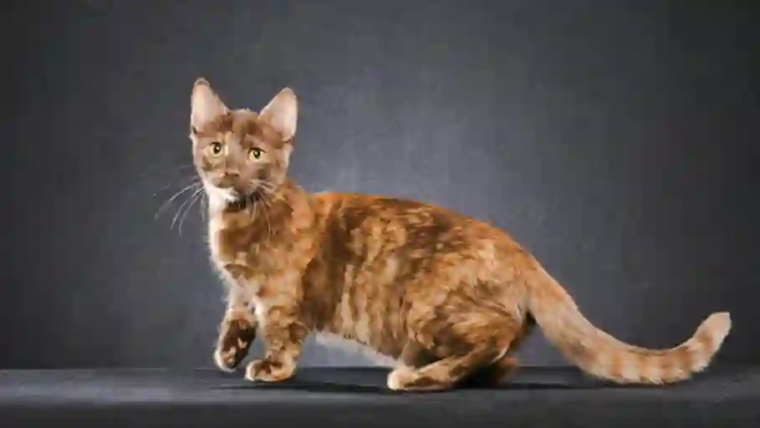Do Munchkin Kittens Have Health Problems?
Munchkin cats are a popular and unique breed of cat known for their short legs and playful personalities. While they are generally healthy cats, there are some health issues that are more common in this breed. In this article, we’ll take a closer look at some of the health problems that Munchkin kittens may face and how to prevent and treat them.
1. Spinal Issues
One of the most common health issues that Munchkin cats may face is spinal issues. The short legs of Munchkin cats are the result of a genetic mutation that affects their skeletal structure. This can cause some Munchkin cats to develop spinal issues such as lordosis or scoliosis. Lordosis is a condition where the spine is curved inward, while scoliosis is a condition where the spine is curved to the side.
Symptoms of spinal issues in Munchkin cats can include difficulty walking, limping, and back pain. In severe cases, spinal issues can lead to paralysis. If you notice any of these symptoms in your Munchkin kitten, it’s important to take them to the vet right away.
2. Joint Problems
Because of their unique skeletal structure, Munchkin cats may also be more prone to joint problems. Joint issues such as hip dysplasia and the luxating patella can cause pain and difficulty walking. These conditions may require surgery or other forms of treatment to manage.
3. Obesity
Munchkin cats can also be more prone to obesity than other breeds of cats. Because of their shorter legs, Munchkin cats may have a harder time exercising and burning off calories. This can lead to weight gain and other health problems such as diabetes and heart disease.
To prevent obesity in your Munchkin kitten, it’s important to feed them a balanced diet and provide plenty of opportunities for exercise and play. Talk to your vet about the best ways to help your Munchkin kitten maintain a healthy weight.
4. Eye Problems
Some Munchkin cats may also be more prone to eye problems such as progressive retinal atrophy and cataracts. These conditions can cause vision loss and other problems. If you notice any changes in your Munchkin kitten’s eyes, such as cloudiness or redness, it’s important to have them examined by a vet.
5. Heart Problems
Finally, Munchkin cats may also be more prone to heart problems such as hypertrophic cardiomyopathy. This is a condition where the heart muscle becomes abnormally thick, which can lead to heart failure and other complications. Symptoms of heart problems in cats can include difficulty breathing, coughing, and lethargy.
If you notice any of these symptoms in your Munchkin kitten, it’s important to take them to the vet right away for diagnosis and treatment.
6. Prevention and Treatment
While there are some health problems that are more common in Munchkin cats, there are steps you can take to prevent and manage these issues. Here are some tips for keeping your Munchkin kitten healthy and happy:
- Regular vet check-ups: Regular check-ups with a veterinarian can help catch any health issues early on and ensure that your Munchkin kitten stays healthy.
- Balanced diet: Feeding your Munchkin kitten a balanced diet that is appropriate for their age and activity level can help prevent obesity and other health problems.
- Exercise: Providing your Munchkin kitten with plenty of opportunities for exercise and play can help keep them in good shape.
- Grooming: Regular grooming can help keep your Munchkin kitten’s coat healthy and prevent skin problems.
- Treatment: If your Munchkin kitten does develop any health issues, it’s important to seek treatment from a veterinarian as soon as possible. This may include medication, surgery, or other forms of treatment depending on the specific issue.
| Health Issue | Symptoms | Prevention | Treatment |
|---|---|---|---|
| Feline Hypertrophic Cardiomyopathy (HCM) | Breathing difficulties, lethargy, loss of appetite, sudden death | Regular cardiac exams, genetic testing | Medication, surgery, heart transplant |
| Patellar Luxation | Limping, lameness, and pain in the hind legs | Regular check-ups, avoiding overexertion | Medication, surgery |
| Spinal Issues | Difficulty walking or jumping, paralysis, incontinence | Gentle play, avoiding high jumps, keeping the cat at a healthy weight | Surgery, medication |
| Gastrointestinal Issues | Vomiting, diarrhea, loss of appetite | A balanced diet, avoiding overfeeding, regular check-ups | Medication, dietary changes |
| Dental Issues | Bad breath, gum inflammation, tooth loss | Regular dental cleanings, dental-friendly diet, dental chews | Tooth extraction, medication, dietary changes |
By being aware of these common health issues and taking steps to prevent them, you can help ensure that your Munchkin kitten lives a long and healthy life.
Conclusion
Munchkin kittens are unique and adorable cats, but like all breeds, they may face certain health issues. By understanding the common health problems that Munchkin cats may face and taking steps to prevent and manage these issues, you can help ensure that your Munchkin kitten stays healthy and happy. Regular check-ups with a veterinarian, a balanced diet, exercise, grooming, and prompt treatment can all play a role in keeping your Munchkin kitten in good health. If you have any concerns about your Munchkin kitten’s health, don’t hesitate to contact your veterinarian for advice and support.



